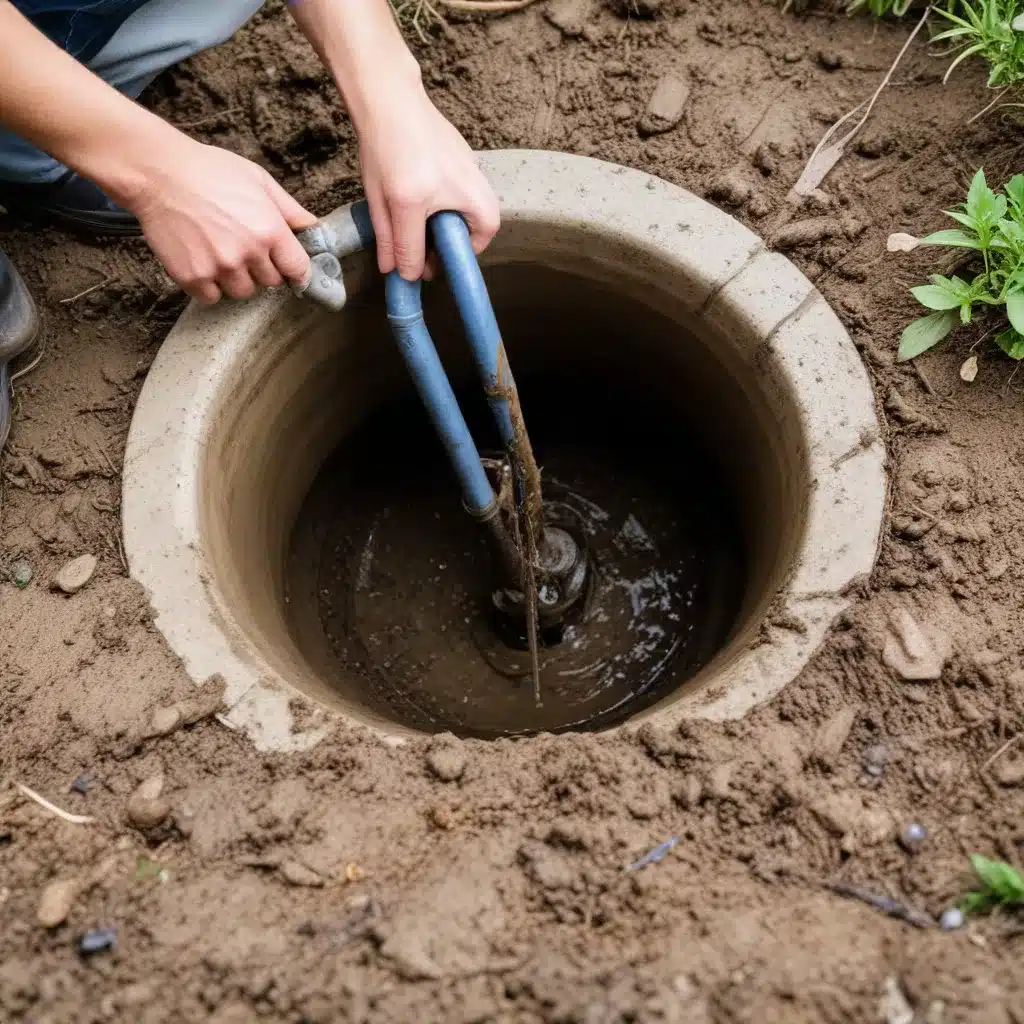
Understanding Common Causes of Sewer Line Clogs
Sewer line clogs can be a frustrating and costly problem for homeowners. These blockages can lead to backups, flooding, and even structural damage if left unchecked. As seasoned plumbing experts, we’ve seen it all when it comes to sewer line issues. In this comprehensive guide, we’ll share our top tips and insights to help you prevent sewer line clogs and maintain a healthy plumbing system.
One of the most common culprits behind sewer line clogs is the accumulation of debris, such as hair, grease, and foreign objects. Over time, these materials can build up in the pipes, restricting water flow and causing blockages. Homeowners who treat their toilets like trash cans, flushing items like diapers, wipes, and paper towels, often find themselves dealing with persistent clogs.
Even something as seemingly harmless as excessive toilet paper can lead to sewer line issues. When too much toilet paper is flushed at once, it can clump together and obstruct the flow of water, creating a clog. It’s important to be mindful of the amount of toilet paper used and, if necessary, flush in smaller increments to prevent this problem.
Another common cause of sewer line clogs is the intrusion of tree roots. As trees grow, their roots can seek out water sources, including sewer lines, and infiltrate any cracks or joints in the pipes. Once inside, the roots can continue to grow, eventually blocking the flow of wastewater and causing a major clog.
Effective Strategies for Preventing Sewer Line Clogs
Fortunately, there are several proactive steps homeowners can take to prevent sewer line clogs and keep their plumbing system running smoothly.
Proper Disposal Habits
One of the most effective ways to prevent sewer line clogs is to be mindful of what you flush down the toilet. Stick to the basics – toilet paper and human waste. Avoid flushing items like diapers, wet wipes, paper towels, and other non-biodegradable materials, even if they are labeled as “flushable.” These items can easily clog your pipes and lead to more significant issues down the line.
Regular Maintenance and Inspections
Scheduling regular maintenance and inspections with a professional plumber can go a long way in preventing sewer line clogs. They can perform a thorough examination of your plumbing system, identify any potential problem areas, and recommend preventative measures to keep your pipes clear and functioning correctly.
During these inspections, the plumber may use specialized tools, such as a sewer camera, to inspect the condition of your sewer line. This can help detect any root intrusion, cracks, or other issues that could lead to future clogs. By addressing these problems early, you can avoid costly and disruptive sewer line repairs.
Proactive Cleaning and Flushing
In addition to professional maintenance, homeowners can take some proactive steps to keep their sewer lines clear. Regularly using a drain cleaner or enzymatic treatment can help break down organic buildup, such as hair and grease, before it accumulates and causes a clog.
Another effective technique is to periodically flush your sewer line with a high-pressure water jetting system. This powerful cleaning method can dislodge and remove stubborn blockages, restoring full water flow. While this is a task best left to the professionals, it’s a valuable preventative measure that can extend the life of your sewer line.
Landscaping Considerations
To prevent tree root infiltration, be mindful of your landscaping choices. Avoid planting trees or shrubs too close to your home’s sewer line, as their roots can eventually find their way into the pipes and cause significant blockages. If you have existing trees near your sewer line, consider having a professional arborist trim the roots to prevent any future issues.
Addressing Persistent Sewer Line Clogs
Despite your best efforts, there may be instances where you encounter persistent sewer line clogs that require more extensive attention. In these cases, it’s best to call in a professional plumber who can properly diagnose and address the problem.
Experienced plumbers have the necessary tools and expertise to clear even the most stubborn blockages. They may use a sewer snake or hydro-jetting equipment to dislodge and remove the clog, or they may need to perform a more comprehensive sewer line inspection and repair.
At DD Plumbing and Heating, our team of seasoned professionals is well-versed in dealing with all types of sewer line issues. We understand the unique challenges that homeowners in our area face, and we’re committed to providing reliable, long-lasting solutions to keep your plumbing system functioning at its best.
Don’t let a sewer line clog turn into a major headache. By following the tips outlined in this guide and enlisting the help of a reputable plumber when needed, you can proactively prevent sewer line clogs and maintain the overall health of your home’s plumbing system.
Key Takeaways
- Sewer line clogs are often caused by the accumulation of debris, such as hair, grease, and foreign objects, as well as the infiltration of tree roots.
- Proper disposal habits, regular maintenance and inspections, proactive cleaning and flushing, and mindful landscaping can all help prevent sewer line clogs.
- When dealing with persistent sewer line clogs, it’s best to call in a professional plumber who can properly diagnose and address the issue.
- At DD Plumbing and Heating, our team of experts is dedicated to providing reliable, long-lasting solutions to keep your plumbing system in top condition.
By taking a proactive approach and partnering with a trusted plumbing company, you can avoid the headaches and costly repairs associated with sewer line clogs. Contact us today to learn more about our services and how we can help keep your home’s plumbing system running smoothly.


